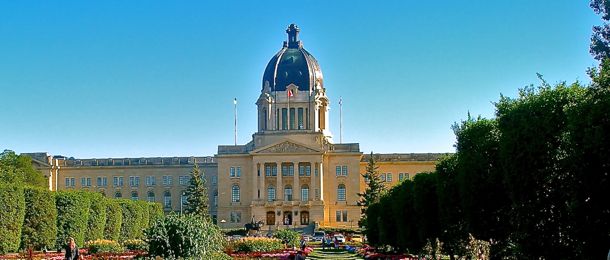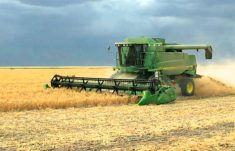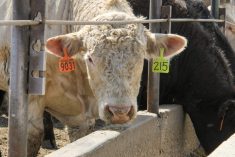Saskatchewan’s government plans to take a closer look at its rules on investment in farmland, but will block such investments by pension funds and other “institutional” investors while the review is underway.
The province said Monday it will soon run further consultations and a review of farmland ownership rules as now laid out under the provincial Farm Security Act.
While the review is underway, though, regulations will prohibit “certain organizations, like pension plans and other institutional investors” from buying Saskatchewan farmland, the government said.
Read Also

U.S. grains: Soybeans continue gains on Trump’s China comments
Chicago | Reuters – Chicago Board of Trade soybeans continued a three-day rally on Friday, fuelled by President Donald Trump’s…
Further details on the consultation process are expected to be announced later this spring, the province said. The review is expected to include opportunities for “interested groups and individuals” to submit views online.
During the freeze, pension plans, administrators of pension fund assets and trusts will be defined by regulation as “not Canadian-owned entities.” Family trusts with fewer than 10 Canadian individuals listed as beneficiaries will still be able to buy farmland.
An “interest” in farmland will be defined during the freeze as “any type of interest or agreement, direct or indirect, that results in any of the benefits (i.e. capital appreciation), either directly or indirectly, of owning of the land.”
Financed farmland purchases during the freeze will have to be done through a financial institution registered to do business in Canada, or through a Canadian resident.
The provincial Farm Land Security Board will be able to provide exemptions for “economic development initiatives” where needed in the meantime, such as for oil and gas development.
The Farm Security Act was meant to limit ownership of Saskatchewan farmland to “Canadian residents and 100 per cent Canadian-owned corporations,” the province said, but the act didn’t “explicitly define” institutional investors, such as pension plans, administrators of pension fund assets and trusts.
“Our goal is not to limit investment, but to ensure the long-term success of Saskatchewan’s agriculture industry and economy,” provincial Ag Minister Lyle Stewart said in a release Monday.
“Recently, the issue has arisen of whether institutional investors like pension plans should be able to purchase Saskatchewan farmland… There are differing views on this matter, so we want to hear from producers and other interested Saskatchewan residents.”
“Doing no harm”
The Canada Pension Plan (CPP) Investment Board, for one, said Monday it’s “concerned” about the province’s decision.
The CPP board in late 2013 bought the assets of Assiniboia Farmland, a fund that owns and manages a portfolio of about 115,000 acres of Saskatchewan farmland, for about $120 million. The board said it had, until now, planned “further purchases” in Saskatchewan farmland.
The Assiniboia portfolio is made up of “pockets” of land, with individual farms rented out to, and farmed by, local farmers. The CPP board said Monday its ownership offers farmers “financial opportunities that support the family farm structure in what has become an extremely capital-intensive business.”
“We are confident that our farmland investments will generate returns for the CPP Fund while doing no harm to Saskatchewan, its farmland market or the farmers,” Michel Leduc, the board’s head of public affairs and communications, said in a release. “If anything, they will benefit.”
The CPP board, he said, “intend(s) to fully participate in the government’s review, and we welcome the government’s perspective that Saskatchewan farmland should be owned by Canadians for the benefit of Canadians.”
The CPP board said it was “proactive” at the time in making sure it was a qualified buyer; and had notified the Farm Land Security Board of its plans in advance.
At the time, the board said, it “did not receive any indication… that its investments in farmland were not welcome.” — AGCanada.com Network














